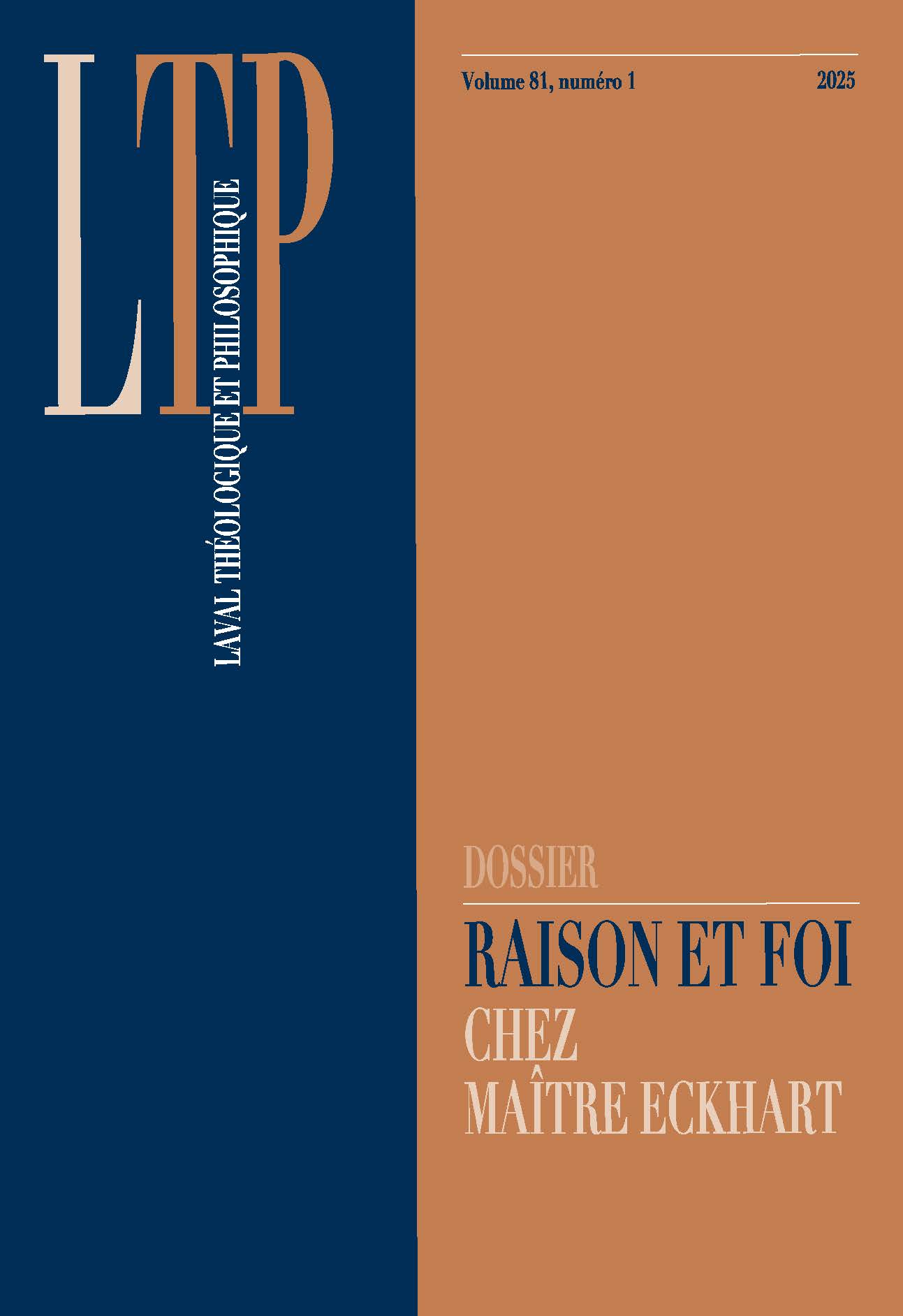Ad esse filium : foi et mouvement chez Maître Eckhart
Abstract
Master Eckhart's original approach was to combine intellectual happiness with the blissful life. Rather than insisting on a "deferred vision", Eckhart argues in favour of an "immediate life". The nuance between vision and life is decisive. While maintaining that faith is not vision, Eckhart shows that life is the place where union with God can be experienced, under certain conditions. His 'theology of beatitude' leads to a re-evaluation of the relationship between faith and reason. Departing from the "general epistemology of knowledge" dominant at the turn of the thirteenth and fourteenth centuries, Eckhart incorporates the Dionysian dictum that "All affirmations about God are said to be incompact, but negations are true". It is through participation in the cause that the affirmation finds its meaning. The passage from the probable to the truth takes place in the "pâtir" (pathein) that cannot be "taught" (mathein) as such: divina patiendo, non discendo ab extra.

